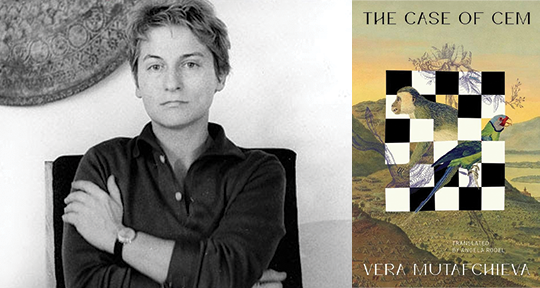The Case of Cem by Vera Mutafchieva, translated from the Bulgarian by Angela Rodel, Sandorf Passage, 2024
Cem—born in the burgeoning Ottoman Empire, the second son of the legendary Mehmed the Conqueror, and in the eyes of history, the exiled prince. In his time, Cem was lauded by storytellers the world over for who he might become and what he might accomplish, until finally he was pitied for all that he endured. But these portrayals of Cem, some true and others exaggerated, have all but faded from the public eye over time—a fact that renowned Bulgarian author and historian Vera Mutafchieva sought to remedy with her comprehensive account of his struggle in her novel, The Case of Cem.
Mutafchieva’s works have been published in nearly a dozen languages, the most recent being Angela Rodel’s English translation of The Case of Cem. Originally published in Bulgarian in 1967, the story follows Cem as he tries and fails to usurp his older brother at the behest of some of his countrymen. He is forced into years of exile that take him far from home, from Rhodes to France to Italy. His imprisonments—though those holding him would call it refuge—turn the almost-sultan into an unwilling pawn and bargaining tool for European powers, and eventually lead to his tragic downfall.
The Case of Cem is a daring blend of court intrigue, tragedy, and historical fact that masterfully captures complex layers of history in its prose and reads like an epic. Just as prevalently, though, it is a reflection on memory, identity, homeland, and what it means to lose them.


